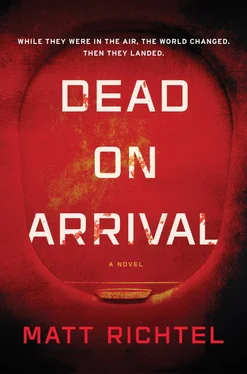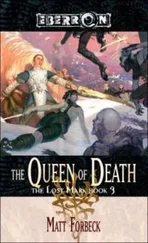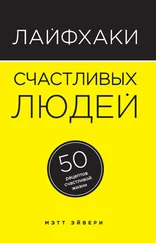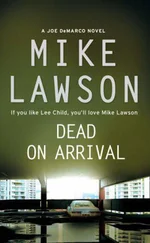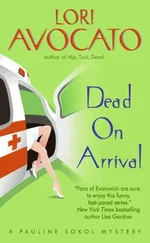“What sort of behavior.”
“Homosexual.”
“ I flog people for that sort of behavior.”
“Well, Minister, I think you’re going to want to change your policy or your own practices.”
“You’re a quack!” His words exploded in a hacking cough. He doubled over.
“Minister, let me add it up for you. You haven’t responded fully to MERS treatment. You’ve got cognition issues and light sensitivity. Pronounced stomach issues, a lung nodule. All of that says to me that your immune system is compromised. On top of that, you sent your people out of the room when it was time to talk to me—”
“So.”
“Maybe nothing. Maybe that you wanted privacy. And I can see why, given the marks.”
“What marks?”
“You’ve got several areas of light purple skin on the back of your neck.”
“I’m getting older. It’s my skin.”
“You know the term quack, Minister, so I’m guessing you are also familiar with the term ‘hickey’?”
The minister glared at him. “This is a joke. Are you the best that the United States has to offer me?”
“I’m definitely not the best. But I have had my share of hickeys, and I’ve given a few too. I know what they look like. And I have seen my share of men die terrible deaths from HIV. Most of them contracted it through sex with other men.”
The minister clenched his jaw, now seemingly to calculate.
Back in the auditorium, Lyle leaned on the lectern. “Nothing special about the diagnosis. In fact, I suspect his personal doctor knew what it was and was looking for someone from the outside to take the fall. In the end, they left the official diagnosis as meningitis and gave the minister an antiviral cocktail that just happened to be the same thing they give for HIV.
“The minister died nine months ago. His condition wound up being widely speculated about. He also spent the last few years of his life intensifying his attacks on homosexual behavior. His rage at his own condition, his hypocrisy, amplified. I mention this, and the story, to impart a particular idea about pathologies, diseases. They are, in their own way, straightforward. They aim to kill an otherwise healthy body. They have a deadly agenda but they don’t hide it. Pathology is not duplicitous. It does not discriminate. It doesn’t choose. It is precisely what it represents itself to be. The same cannot always be said of people.”
At the edge of the stage, Emily, Lyle’s intern, tensed. Dr. Martin was out on that Dr. Martin ledge again, heading to parts unknown. In the back of the room, Dean Thomas had a similar but less generous version of the thought: The asshole is going to get rave reviews again, and for what, storytelling?
“Hickam’s dictum,” Lyle continued. “Patients can have as many diseases as they damn well please. Implicit in the phrasing is that people choose illness. This, of course, is utterly false on its face. They don’t choose. But they can reveal. Even inadvertently, often, in fact, inadvertently. I urge you, when you sit at the bedside, to think about the person, the individual. Consider his or her history, habits, as well as the larger context of culture, constituency, demographic. Think about what makes a person tick. What separates a good doctor from a great doctor, in my opinion, happens outside the pages of the book.”
In the back of the room, the man in the too-tight suit smiled. He thought, Dr. Martin is brilliant, just as advertised.
“Dr. Martin,” Emily called quietly. He turned to the side. She pointed to her watch. He nodded and turned back to the stage.
“Having said all that about going beyond the book, I’d like if everyone could read the next three chapters of infectious disease principles and practices. If there are any questions, I think we’ve got some office hours set up in the lounge.” A smattering of applause accompanied the sound of students standing, packing up, hustling on. Lyle could feel his heart working double time with the pulse of dehydration and still metabolizing sleep drugs, and from stress toxins left over from his fight with Melanie. He let his eyes wander to the dean and her guest. Whatever they wanted to talk to him about, he’d seen enough to know. Someone was dying.
Dean Thomas marched up the aisle, looking ever the headmistress. She made a beeline for Lyle. Trailing her, a foot behind, more measured, walked Michael Swateli, a Tanzanian attaché to the CDC. Lyle ignored the both of them and followed Emily to an adjoining conference room they sometimes used for office hours. It was antiseptic, just a rectangular table made of cheap wood and, on the wall, a whiteboard. A yellow sheet of paper tacked inside the door indicated the place was not to be used for study.
Nearly two dozen students showed up. Lyle sat on the edge of the table and the students mostly stood, a few taking the nearest chairs. The dean stood near the door, resigned that Lyle appeared to be going through with his office hours. She was in a bit of a tough spot in that she had just a few weeks earlier urged him to show up for all his obligations (by which she mostly meant his faculty obligations) and couldn’t now easily yank him from his scheduled office hours. Even though a foreign governmental official stood nearby with an urgent request.
“Mr. Swateli,” she said in a low voice, “I do think Dr. Sanchez could be a great alternative for you.”
“We had this conversation, Dean Thomas.”
“She’s respected without peer for her broad-based understanding of—”
“I’m happy to wait,” Michael said, putting it to bed.
In pushing Dr. Sanchez, the dean was genuinely suggesting a terrific clinician. But she had a low-level ulterior motive: the dean knew such a consultation might well irk Dr. Martin. Dr. Sanchez was by the book, the sort of scholar who privately blanched at some of Lyle’s more “creative” methods, and he, the dean guessed, was just as unimpressed by her. It would be nice to see something get under Dr. Martin’s skin.
On the other hand, as the dean stood there, she managed a feeling of genuine pride as the students asked Lyle their questions. This group, like all the graduate students at the UCSF medical school, were not just among the best and the brightest but were arguably the best, a pick of the litter that matched Harvard, Stanford, and the rest. One student, seated at the table, pulled from his backpack a white mask. He described it to Lyle as a new version of an N-95 respirator, which, generically, was one of a handful of field air-purifying respirators. But the student said his version, which he’d made in his spare time, did a better job at resisting degradation from industrial oils. Would Dr. Martin take a look?
“Not exactly my expertise—product design. But I’m happy to glance,” Dr. Martin said, turning the mask over in his hands. “Check with me next week. If I’m still alive, it worked.” Laughs. “Okay, anything else? I can see that if I keep Dean Thomas waiting any longer, I may be killed anyway.”
He looked around the room. It seemed the meeting was over when his eye fell on a student whose arm was half raised, as if she couldn’t decide whether to ask a question.
“What’s on your mind,” he encouraged.
“What about doctor-patient privilege?” Her voice sounded familiar.
“Sorry, I’m not sure I know what you’re asking,” Lyle said.
“You shared the story of the minister—in Saudi Arabia. What about privacy?”
Now Lyle placed the voice’s familiarity; it was the woman seated in the back of his lecture who had correctly shouted out “CT scan with contrast” in answer to a question Lyle had asked the audience: What procedure did the minister need?
Читать дальше
